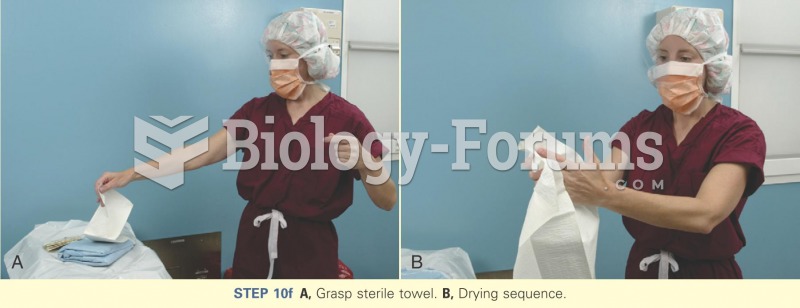Answer to Question 1
Correct Answer: 1,2,3,4
Rationale 1: Bradycardia is an adverse effect of this medication.
Rationale 2: Hypotension is an adverse effect of this medication.
Rationale 3: Increased heart rate is an adverse effect of this medication.
Rationale 4: Decreased heart rate is an adverse effect of this medication.
Rationale 5: Hyperactive bowels sounds are not an adverse effect of this medication.
Global Rationale: Bradycardia, hypotension, increased heart rate, and decreased heart rate are adverse effects of this medication. Hyperactive bowels sounds are not an adverse effect of this medication.
Answer to Question 2
Correct Answer: 1,2,3,4
Rationale 1: Tubocurarine is used as an adjunct to anesthesia to cause complete skeletal muscle relaxation of the abdominal muscles during operative procedures.
Rationale 2: This is a short-acting nondepolarizing neuromuscular blocking agent that can be used as a continuous infusion for this surgical procedure.
Rationale 3: This is an intermediate-acting nondepolarizing neuromuscular blocking agent that can be used for this surgical procedure.
Rationale 4: This is an intermediate-acting nondepolarizing neuromuscular blocking agent that can be used for this surgical procedure.
Rationale 5: This is a depolarizing neuromuscular blocking agent that is used for short procedures and would not be indicated for an abdominal aortic aneurysm repair.
Global Rationale: Tubocurarine is used as an adjunct to anesthesia to cause complete skeletal muscle relaxation of the abdominal muscles during operative procedures. Mivacurium (Mivacron) is a short-acting nondepolarizing neuromuscular blocking agent that can be used as a continuous infusion for this surgical procedure. Pancuronium (Pavulon) is an intermediate-acting nondepolarizing neuromuscular blocking agent that can be used for this surgical procedure. Vecuronium (Norcuron) is an intermediate-acting nondepolarizing neuromuscular blocking agent that can be used for this surgical procedure. Succinylcholine (Anectine) is a depolarizing neuromuscular blocking agent that is used for short procedures and would not be indicated for an abdominal aortic aneurysm repair.







